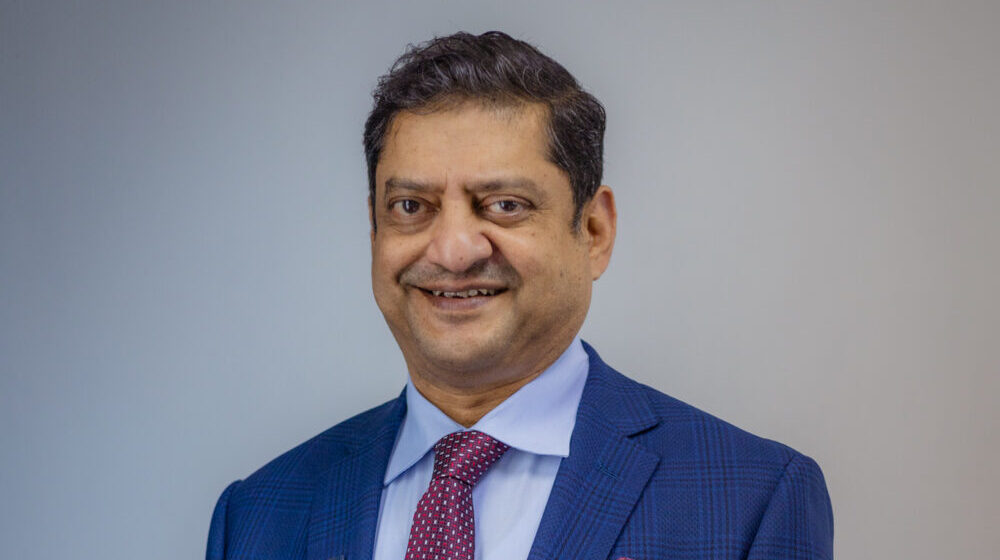Cedwyn Fernandes, Pro Vice-Chancellor and Director at Middlesex University Dubai, is also a Professor of Economics and International Business, at the University.
Over the past two decades, Professor Fernandes has held leadership and executive positions with several universities in the UAE. Prior to this, he was an economist with Saudi Arabian Airlines where he was in-charge of international project investments. Professor Fernandes’s research interests are in the areas of macroeconomics, international business management, leadership and supply chain management. Moreover, his research has contributed macro-economic understanding of the transformation and diversification of the UAE’s economy. At the firm level, his research examined perceptions of organisational justice and impact on job satisfaction and performance in expatriate work environments. More recently, his work is focused on effective crisis leadership based upon lessons learned during the pandemic.
Under his leadership, Middlesex University Dubai has doubled in size, to become the largest UK university campus in the region. In a conversation with Education Middle East, Fernandes shares his strategies for achieving growth, discusses trends related to the UAE emerging as a centre for higher education and recommends policy tweaks to facilitate further growth and more.
Middlesex University Dubai has experienced significant growth over the years. What strategies have you adopted towards achieving it?
Over the past five years, our university has witnessed a remarkable doubling of its student numbers, attributed to various contributing factors. The growth is mainly a result of students within the UAE choosing to continue their studies in-country, alongside an influx of international students choosing Dubai as their destination for higher education. Our strategy has been to provide an outstanding student experience, blending academic excellence, employability, sports and cultural activities and industry interaction. This has been strongly supported by the economic growth and reputation of the UAE and Dubai on the world stage.
What percentage of new admissions at Middlesex University are from outside the UAE?
Middlesex University Dubai this year had around 50% of its students who came to the UAE just to study, and we are proud to have 127 nationalities at our campus.
What are the trends related to UAE emerging as the centre for higher education in the region? Would you suggest any policy tweaks in facilitating this growth?
The UAE has secured its position among the top 10 destinations for TNEs (Transnational Education) — international universities establishing campuses in foreign countries. It has also emerged as one of the fastest-growing hubs for international students. There are more than 100 higher education institutions in the UAE; a development predominantly witnessed in the past two decades. The prevailing trend sees international universities establishing campuses that focus on offering specialised programmes rather than comprehensive institutions spanning various disciplines.
Despite its relatively small population, the UAE anticipates continued growth in student numbers, primarily from those who specifically choose the country for their studies. At present, the cost of student accommodation is a limiting factor although there are world-class options available. Subsidising costs for accommodation providers could contribute to making it more affordable for students.
The implementation of the Golden Visa awarded to outstanding students has proven highly beneficial to the sector’s growth. Many Middlesex University students have received this recognition. The provision of a two-year automatic work visa post-graduation could further enhance the UAE’s appeal as a study destination.
What are the efforts that go into curriculum restructuring at Middlesex University, especially with fast-changing industry trends?
A cornerstone of our strategic approach is to align our curriculum with Dubai and the UAE’s economic growth strategy. Under the D33 economic initiative of the Dubai Government the emphasis is on technology, innovation and entrepreneurship. The University has recently introduced courses in AI, Cybersecurity, VR, and will soon launch courses in Legaltech and Fintech. This is in addition to our 70+ programmes in Business Management, Psychology, Fashion Design, Law, Digital Media, Graphic Design, Accountancy & Finance, Computer Engineering, IT and Education.
Could you explain some of the challenges you have faced in terms of faculty training and teacher recruitment? How have you managed to mitigate them?
Considering Dubai’s reputation as an international city and destination of choice, we have not faced challenges in attracting the best faculty from all around the world. The key is to offer a competitive salary and benefits package and a work environment that will facilitate teaching and support research. Anchored by a dynamic Teaching & Learning department, our focus is on delivering optimal teaching practices and incorporating cutting-edge teaching technology for our lecturers. It is worth noting that all our lecturers hold the top qualification in their disciplines and have a Postgraduate Teaching Certificate – or can do this free of charge at our university.
What are the factors that have contributed to the most in-demand courses? Have you introduced any new courses in the past five years? What, according to you, is driving the demand for the same?
The functional competencies required to run and manage organisations remain more or less the same over the years. These encompass Human Resource Management, Accounting, Finance, Management, Leadership, Marketing, Operations, Supply Chain & Logistics, IT, IS, and Media Management. In addition, technical and creative skills programmes such as Computer Engineering, AI, VR, Cybersecurity, Graphic Design, Law, Chartered Accountants and Education are on the rise. The interesting aspect of having a comprehensive university is the ability to integrate curriculum across various disciplines. For instance, the incorporation of VR components into psychology, marketing and education programmes exemplifies this interdisciplinary approach. The Legaltech and Fintech programmes that we will soon launch is another example of cross-disciplinary curriculum.
Your own work has focused on effective crisis leadership. How can educational institutions apply lessons from crisis leadership to better manage unexpected challenges such as the pandemic to maintain seamless education delivery?
The pandemic proved to be a crisis that impacted all organisations and countries globally. Organisations were just not prepared for the challenges that the pandemic brought about. Leaders followed leadership styles that worked in normal times, while leading during a crisis requires a ‘Situational Leadership’ style to deal with different aspects of the crisis. The paramount lesson learned from this period is the imperative need to prioritise employee well-being, emphasising communication, realism, decisive action without recklessness, and the fortification of management teams. This process is continuous and underscores the dynamic nature of crisis leadership.
As someone who is teaching Economics and International Business, how do you see the role of global collaboration and partnerships between educational institutions in fostering a rich, diverse, and globally relevant learning environment, particularly in the context of the UAE?
Partnerships and collaborations accelerate the learning and knowledge exchange process. At Middlesex University Dubai, our Enterprises and Research Centres foster collaborations with some of the leading universities and organisations, both nationally and internationally.
Could you share some effective methods that universities can adopt to bridge the gap between theory and practice to ensure that students are better equipped for the job market?
At Middlesex University our goal is to make our students 100% employable. We firmly believe that our students come to us not only to acquire knowledge but also to apply it effectively in the workplace. We aim to achieve this goal via practical assessments, internships and volunteering opportunities, professional certifications and connecting industry and organisations with our students via projects, workshops and guest lecturing opportunities.
There is a rapid change in educational landscapes and technological advancements. What advice would you offer to educational leaders who are aiming to foster innovation and adaptability within their institutions?
At the core of learning resides the art of teaching. Once mastered, everything else seamlessly falls into place. While technology serves as a crucial facilitator, the indispensable prerequisite is the presence of excellent teachers. Technology plays a vital role in disseminating knowledge on a broader scale and nurturing innovation. When coupled with an inspirational teacher or mentor, the synergy created is unparalleled.








